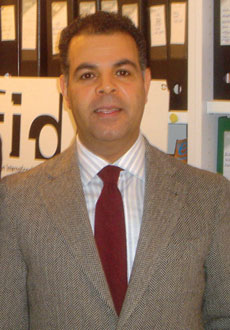
|
 |
 |
|
|
|
|
|
|
|
|
|
|
|
|
|
|
|
|
|
|
|
|
|
|
Position of the Bahraini Shias vis-à-vis the StateHasan Moosa Shafaie
The state is a disrespected entity in Arab culture and unlike contemporary political culture, it is associated with ‘change’ and ‘instability’. In the Arab public’s mind the state contradicts freedom and especially amongst tribes who move around between boarders without restrictions, passports and identities. Although Arabs respect private properties and refuse to abuse or violate them, State property, on the other hand, is disrespected and would probably be vandalized and plundered if an opportunity was available. Hence, Arabs face problems with regards to building a real and respected state that is viewed as a reflection of themselves and hence would refuse to belittle, weaken or assault it. On the contrary, the Arab citizen merely views the state as a monster that assaults his private quarters and restricts his freedom of movement and expression. Even ‘the rentier state’ has not been able to escape the problems of vandalism and assault on state property by its own citizens. Such as: the vandalism of public parks and toilets, the plundering of public money and the increase of corruption. This leaves the state as easy target entity during times of peace and also in times of political tension as public property is the primary target for vandals. This is clear today as from the targeting of electricity generators, street lamps and traffic lights etc. The legitimacy of the state, in other words, its sovereignty on its people and land, is an issue that is not deeply rooted in the public conscience. This is due to the authoritarian and undemocratic nature of the state and its failure to achieve the citizens’ objectives and fulfill their hopes. In Bahrain, when the relationship between the state and society was revised and the reform period began, it was expected that this would change the negative view towards the state. In fact, this negative perception has changed among many people, especially amongst the Shia. However, the Shia’s problem, in particular, has a deeply rooted historical dimension. The old Shia perception views all ruling regimes as illegitimate. During the 4th Century of (Higri), Shia jurists reduced the restrictions on working with an unjust ruler, as stated by Sharif Al Murtaza Alam Al Huda. Sheikh Karaki followed in the 10th Century AD and permitted participation in the state and working with the Sultan; he also rejected the idea of the state being illegitimate. During the end of the 20th Century, the views of the state and its legitimacy had developed; if the state is elected democratically and is accepted by the public, then it is permitted to work in its apparatus. Hence, the idea of the state being a strange entity and collaboration with it is a sin, no longer exists. In Bahrain it is obvious that the Shia – except very few - do not see themselves as the states’ enemies or far from ruling the country and are unable to resist the temptation of participating in the state and influencing its decisions to serve the public’s interest as long as democratic opportunities exist. However, there is still a minority that believes in the legacy of the past - something that which most Shia have abandoned. This minority perceives the state in Bahrain as being as a whole illegitimate and therefore justify disobeying its laws and disrespecting its properties. Thus, according to them it is permissible to vandalize and plunder public properties, as well as the use violence. Also, participating in the council and parliamentary elections, accepting a government official position and dealing with Government officials, should be rejected and shunned as stated in the statements of political extremists. It is not possible to go back in time to change the position of the Shias in Bahrain intellectually or politically. The State in Bahrain is for everyone, and the Shias have contributed like everybody else in the building of the country. They voted for its independence in 1971 and for the Charter in 2001 and participated in the political process. Therefore, the gap that extremists want to create not only depends upon old and worn out ideas that are abandoned by the Shia, but will weaken and marginalize themselves. This is in addition to weakening their country and making their own lives difficult. Any individual who care about the interest of his/her people would not do such a thing. |
